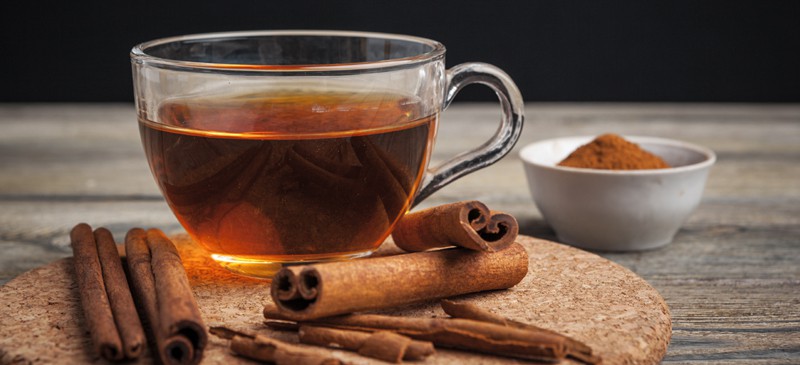This Dr. Axe content is medically reviewed or fact checked to ensure factually accurate information.
With strict editorial sourcing guidelines, we only link to academic research institutions, reputable media sites and, when research is available, medically peer-reviewed studies. Note that the numbers in parentheses (1, 2, etc.) are clickable links to these studies.
The information in our articles is NOT intended to replace a one-on-one relationship with a qualified health care professional and is not intended as medical advice.
This article is based on scientific evidence, written by experts and fact checked by our trained editorial staff. Note that the numbers in parentheses (1, 2, etc.) are clickable links to medically peer-reviewed studies.
Our team includes licensed nutritionists and dietitians, certified health education specialists, as well as certified strength and conditioning specialists, personal trainers and corrective exercise specialists. Our team aims to be not only thorough with its research, but also objective and unbiased.
The information in our articles is NOT intended to replace a one-on-one relationship with a qualified health care professional and is not intended as medical advice.
Top 6 Cinnamon Tea Benefits + How to Make It
April 2, 2019

Cinnamon tea is a popular beverage favored for both its medicinal properties and delicious, soothing flavor. But is drinking cinnamon tea good for you? In recent years, research has unearthed a number of powerful benefits of cinnamon, plus several impressive ways that cinnamon can impact your health. From regulating blood sugar levels to preserving brain function, cinnamon has secured its status as a powerhouse of nutrition.
So what exactly is cinnamon tea, and how can you start making it at home? Let’s take a closer look.
What Is Cinnamon Tea?
Cinnamon tea is a beverage prepared by boiling a stick of cinnamon in water and letting it steep to infuse the drink with its sweet, fragrant flavor. Although many people combine cinnamon it with other ingredients, such as ginger, honey or milk, others prefer to enjoy it as is and allow the natural flavors to shine through.
So what is cinnamon tea good for? In addition to being a delicious and soothing caffeine-free beverage, this tea may also boast several important benefits. In fact, some of the potential health benefits of cinnamon tea include improved heart health, better blood sugar control, increased weight loss and more.
Types
Is cinnamon tea good for you? And what is the best cinnamon tea?
There are two types of cinnamon commonly used to make this power-packed beverage. Cassia cinnamon is the most common form of cinnamon. This is the one often found in the spice aisle of most superstores. Although it originates in China, Cassia cinnamon is widely cultivated and used around the world. However, Cassia cinnamon can actually be harmful in high doses thanks to the presence of a compound called coumarin, which can be toxic if consumed in large amounts.
Meanwhile, Ceylon cinnamon, also known as “true cinnamon,” is another form of cinnamon associated with a long list of health benefits. While it also contains coumarin, it is found in much smaller amounts in Ceylon tea than in cassia cinnamon, making it a much safer alternative to Cassia cinnamon.
Health Benefits
- Stabilizes Blood Sugar
- Supports Heart Health
- Has Anti-Cancer Properties
- May Promote Weight Loss
- Decreases Inflammation
- Preserves Brain Function
1. Stabilizes Blood Sugar
Cinnamon has been shown to have a powerful impact on blood sugar levels. Some research shows that it acts like insulin in the body, which is the hormone responsible for shuttling sugar from the bloodstream to the tissues. It may also enhance the effectiveness of insulin in the body and protect against insulin resistance. According to a review conducted by Thames Valley University in the U.K., cinnamon could decrease fasting blood sugar levels by up to 29 percent in those with type 2 diabetes.
2. Supports Heart Health
Adding cinnamon tea to your daily routine could bring big benefits when it comes to heart health. In fact, cinnamon has been shown to reduce several heart disease risk factors to keep your heart working efficiently. In addition to lowering blood sugar levels, cinnamon may also help decrease levels of total and “bad” LDL cholesterol as well as triglycerides. It may also increase levels of beneficial HDL cholesterol, which helps remove excess cholesterol from the arteries.
3. Has Anti-Cancer Properties
Some impressive in vitro studies and animal models have found that cinnamon may aid in cancer prevention. One study published in the journal BMC Cancer showed that cinnamon extract was able to induce tumor cell death in skin cancer cells by modifying the activity of specific proteins. Another in vitro study in Maryland had similar findings, noting that polyphenols isolated from cinnamon helped reduce the growth and spread of liver cancer cells. However, more studies are needed to understand whether the cancer-fighting effects of cinnamon may also apply to humans as well.
4. May Promote Weight Loss
Can drinking cinnamon tea help lose weight? Although research is limited on the effects of cinnamon tea for weight loss, several studies have found some promising results. For instance, one study out of India showed that supplementing with three grams of cinnamon daily for 16 weeks resulted in significant decreases in waist circumference and body mass index compared to a control group. Another in vitro study published in Scientific Reports found that cinnamon extract induced browning of the fat cells, which is a process that is thought to increase metabolism and protect against obesity.
5. Decreases Inflammation
Studies show that cinnamon is rich in antioxidants and potent anti-inflammatory properties. For instance, one study conducted by China Medical University demonstrated that certain compounds found in cinnamon were effective at reducing markers of inflammation in vitro. This could translate to far-reaching cinnamon tea benefits for skin health, joint pain, disease prevention and more. How? Research suggests that inflammation could be at the root of chronic conditions like cancer, diabetes and autoimmune disorders.
6. Preserves Brain Function
One of the most impressive benefits of cinnamon tea before bed is its ability to protect and preserve brain function. Interestingly enough, several studies indicate that certain compounds found in cinnamon tea could aid in the prevention of neurodegenerative disorders like Alzheimer’s disease. For instance, one animal model showed that cinnamon improved motor function and helped protect brain cells in mice with Parkinson’s. Another in vitro study out of California demonstrated that specific compounds in cinnamon helped prevent abnormal modifications to proteins in the brain, which could aid in the prevention of Alzheimer’s.
How to Make (Plus Recipes)
There are several different methods for how to make cinnamon tea for diabetes, weight loss, inflammation or overall health, plus plenty of different cinnamon tea recipe options available as well.
One of the easiest ways to make hot cinnamon spice tea is to simply add one teaspoon of ground cinnamon to a cup of hot water and stir. You can also make cinnamon stick tea by steeping a stick of cinnamon in boiling water for 10–15 minutes. This allows the unique flavor and health-promoting compounds to infuse into the beverage. Cinnamon tea bags are also available at many health stores and are often combined with other herbs or types of tea, such as cinnamon green tea, ginger cinnamon tea or cinnamon honey tea.
You can also try spicing up your cup of tea with your favorite mix-ins, spices and natural sweeteners. Turmeric, apples, lemons and bananas are all delicious and nutritious ways to add a pop of flavor to your beverage. Here are a few simple recipes to get you started:
- Korean Cinnamon Tea
- Turmeric, Cinnamon and Ginger Tea
- Cinnamon Banana Tea
- Lemon Cinnamon Honey Tea
- Cinnamon Apple Tea Latte
Although there’s no specific guidelines for when to drink cinnamon tea, many prefer either drinking it first thing in the morning or a bit before bed for a soothing, sleep-promoting beverage. However, you can enjoy this tasty drink at any time of day to take advantage of the unique health benefits that it has to offer.
Risks and Side Effects
What are the side effects of cinnamon tea? When consumed in moderation, the risk of potential cinnamon tea side effects is very low. However, eating high amounts of cinnamon can cause issues like mouth sores, low blood sugar and breathing problems. Be sure to use Ceylon cinnamon rather than Cassia cinnamon to keep coumarin consumption low and prevent negative side effects.
If using cinnamon tea for weight loss, be mindful of the ingredients you use in your cup. Adding sweeteners like honey, maple syrup or sugar to your drink can enhance the flavor, but it can also cause the cinnamon tea calories to stack up quickly.
Additionally, keep in mind that cinnamon may interfere with medications used to lower blood sugar levels. If you take any diabetes medications, consider talking to your doctor before adding cinnamon tea to your routine to avoid adverse effects on health.
Read Next: Cinnamon Oil: 10 Proven Benefits and Uses










